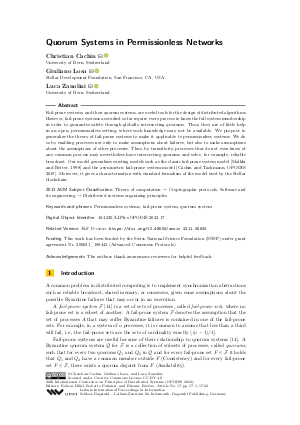LIPIcs.OPODIS.2022.17.pdf
- Filesize: 0.81 MB
- 22 pages

 Creative Commons Attribution 4.0 International license
Creative Commons Attribution 4.0 International license


















Feedback for Dagstuhl Publishing